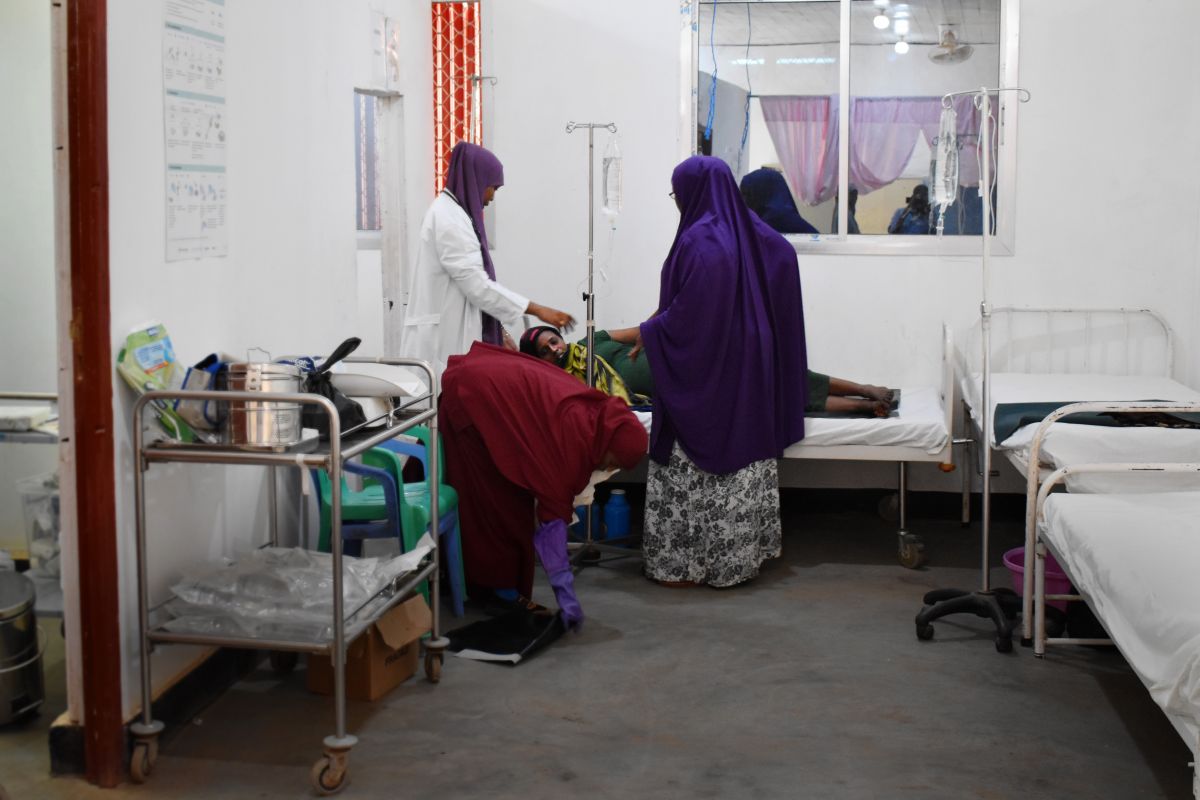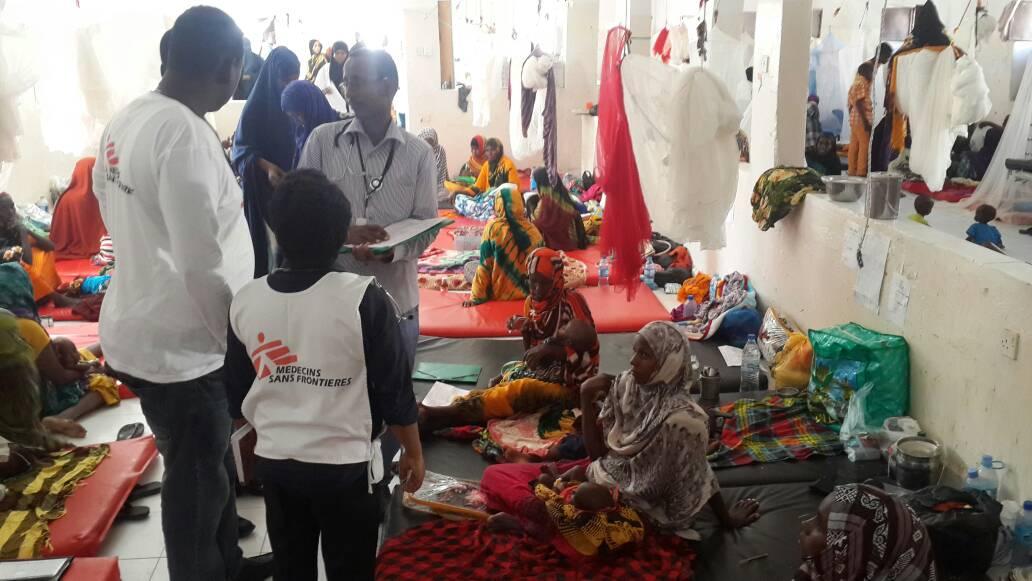Since May 2018, MSF is supported the Bay Regional hospital in Baidoa, in the South West State of Somalia, to address the health needs of women and children. From May to December 2018, over 4 thousand women received antennal or post-natal consultations and over 1, 5 thousand women were admitted in the maternity. A total of 686 babies were delivered in that 8 month period.
In Somalia, Maternal mortality rates are among the highest in the world. One in 12 women is likely to die during pregnancy, childbirth, or the postpartum period because of lack of access to health services. Similarly, infant mortality is exceptionally high with one in seven children not reaching the age of five.

Labor ward of Baidoa’s Bay Regional Hospital. Ministry of Health seconded staff are attending to a mother in labour.

Building up obstetric services
The first phase of MSF’s intervention, aimed at establishing a fully functioning comprehensive obstetric unit, will involve supporting the hospital’s capacity to deliver antenatal and postnatal care and ensure normal deliveries. It will expand in coming months to include developing a neonatal unit and support to paediatric inpatient and emergency room services.
“MSF is committed to helping women during childbirth. Ordinarily this is a very difficult period in a woman’s life, but given that the fighting has destroyed many health structures, the challenges of giving birth are even greater,” says Himedan M. Himedan, MSF´s Head of Programme for Somalia.
“We need to get the word out to the whole community, so that expectant mothers know that they can receive quality care from MSF during this period.”
MSF humanitarian medical activities in support to the Somali population

MSF resumed activities in Somalia in May 2017, after an absence of close to four years due to extreme attacks on its staff and other serious concerns. Since its return to Somalia, MSF has been supporting the Bay Regional hospital in Baidoa and the Mudug Regional Hospital in Galkayo. MSF teams have also provided humanitarian assistance in the displaced camps of Galcayo, nutritional support in Dollow in Dhusmareeb and punctual visits to Jubaland to support child healthcare and prepare for outbreaks in Dhobley, Bardhere and Garbaharey.
MSF has conducted cataract surgery eye camps in collaboration with local agencies in Ergavo, Las Anod, Buhodle, Galcayo, Baidoa and Bardhere.
“Across Somalia, MSF is looking to ensure that people have access to medical care in areas where needs are critical and where the security conditions permit. The need for free quality healthcare is very high in Somalia and our strategy is to steadily increase our support to existing structures to improve the services. While the context is certainly challenging, we can rely on dedicated national staff, often medical staff who have already worked with MSF, to build the capacity and ensure improved access to healthcare services in Somalia,” says MSF Somalia Country Representative Gautam Chatterjee.
MSF supports the greater Somali region. In Hargeisa, MSF is supporting treatment of Drug resistant tuberculosis and is planning to support other Health structures in Las Anod. Also it provides medical humanitarian assistance in the Dadaab refugee camp in Kenya as well as in the Somali region of Ethiopia.
